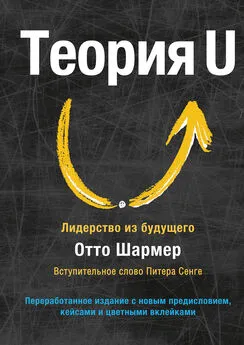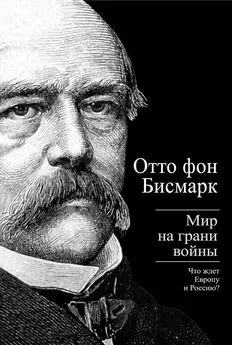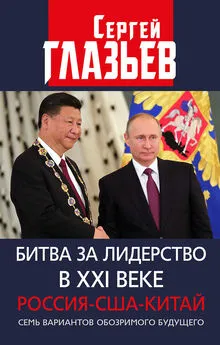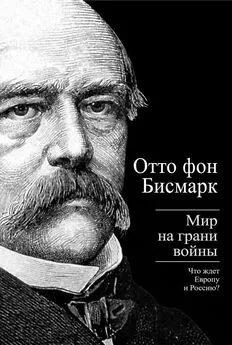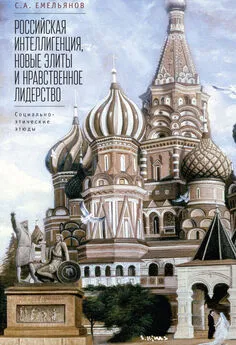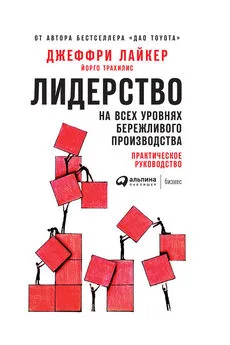Отто Шармер - Теория U. Лидерство из будущего
- Название:Теория U. Лидерство из будущего
- Автор:
- Жанр:
- Издательство:Литагент МИФ без БК
- Год:2019
- Город:Москва
- ISBN:978-5-00117-457-8
- Рейтинг:
- Избранное:Добавить в избранное
-
Отзывы:
-
Ваша оценка:
Отто Шармер - Теория U. Лидерство из будущего краткое содержание
Эта книга написана для лидеров и активных сторонников изменений в корпорациях, правительствах, неправительственных организациях и сообществах.
На русском языке публикуется впервые.
Теория U. Лидерство из будущего - читать онлайн бесплатно ознакомительный отрывок
Интервал:
Закладка:
Friedman, Thomas L. 2000. The Lexus and the Olive Tree. New York: Anchor Books.
Fritz, Robert. 2003. Your Life as Art. Newfane, VT: Newfane Press.
Friedman, Thomas L. 1989. The Path of Least Resistance: Learning to Become the Creative Force in Your Own Life. New York: Fawcett Columbine.
Fukuyama, Francis. 1992a. The End of History and the Last Man. New York: Free Press.
Fukuyama, Francis. 1992b. Trust: The Social Virtues and the Creation of Prosperity. New York: The Free Press.
Galtung, Johan. 1996. Peace by Peaceful Means: Peace and Conflict, Development and Civilization. London: Sage.
Galtung, Johan. 1995 On the Social Costs of Modernization: Social Disintegration, Atomie/Anomie and Social Development. Research Paper. UNRISD: Geneva.
Galtung, Johan. 1988. Methodology and Development: Essays in Methodology, vol. 3. Copenhagen: Ejlers.
Galtung, Johan. 1979. Papers on Methodology: Theory and Methods of Social Research. Copenhagen: Ejlers.
Galtung, Johan. 1977a. Methodology and Ideology: Theory and Methods of Social Research. Copenhagen: Ejlers.
Galtung, Johan. 1977b. “Social Structure and Science Structure.” In Methodology and Ideology. Copenhagen: Ejlers.
Galtung, Johan and Sohail Inayatullah. 1997. Macrohistory and Macrohistorians: Perspectives on Individual, Social, and Civilizational Change. Westport, CT: Praeger. Gardner, Howard. 1995. Leading Minds: An Anatomy of Leadership. New York: Basic Books.
Galtung, Johan. 1993. Multiple Intelligences: The Theory in Practice. New York: Basic Books.
Galtung, Johan. 1985. The Mind’s New Science: A History of the Cognitive Revolution. New York: Basic Books.
Gendlin, Eugene T. 1997. A Process Model. Chicago: University of Chicago.
Gendlin, Eugene T. 1981. Focusing. 2nd ed. New York: Bantam.
Gendlin, Eugene T and Johannes Wiltschko. 2004. Focusing in der Praxis: Eine schulenübergreifende Methode fur Psychotherapie und Alltag. 12th ed. Stuttgart: Pfeiffer bei Klett-Cotta.
Gerzon, Mark. 2003. Leaders Beyond Borders: How to Live – and Lead – in Times of Conflict.
Ghyczy, Tiha von, Bolko von Oetinger, and Christopher Bassford, eds. 2001.
Clausewitz on Strategy: Inspiration and Insight from a Master Strategist. New York: John Wiley.
Giddens, Anthony. 1984. The Constitution of Society. Outline of the Theory of Structuration. Cambridge: Polity Press.
Gladwell, Malcolm. 2005. Blink: The Power of Thinking Without Thinking. New York and Boston: Little, Brown.
Gladwell, Malcolm. 2000. The Tipping Point: How Little Things Can Make a Big Difference. New York and Boston: Little, Brown.
Glasl, Friedrich. 2002. Konfliktmanagement: Ein Handbuch fur Führungskrafte, Beraterinnen und Berater. 7th ed. Bern: Verlag Paul Haupt and Stuttgart: Verlag Freies Geistesleben.
Glasl, Friedrich. 1999. Confronting Conflict. Stroud, UK: Hawthorn Press.
Glasl, Friedrich. 1997. The Enterprise of the Future. Stroud, UK: Hawthorn Press.
Goethe, Johann Wolfgang. 1986. Faust: Der Tragödie erster Teil. Stuttgart: Philipp Reclam Jun.
Goffman, Erving. 1999. The Presentation of Self in Everyday Life. Magnolia, MA.: Peter Smith Pub., Inc.
Goleman, Daniel, Richard Boyatzis, and Annie McKee. 2002. Primal Leadership: Realizing the Power of Emotional Intelligence. Boston: Harvard Business School Press.
Greenleaf, Robert K. 1977. Servant Leadership: A Journey into the Nature of Legitimate Power and Greatness. New York and Mahwah, NJ: Paulist Press.
Gupta, Bina, ed. 2000. The Empirical and the Transcendental: A Fusion of Horizons. Lanham, MD: Rowman and Littlefield.
Habermas, Jürgen. 1981a. Kleine politische Schriften. Frankfurt am Main, Germany: Suhrkamp.
Habermas, Jürgen. 1981b. Theorie des kommunikativen Handelns erster Band. Frankfurt am Main: Suhrkamp.
Hagel, John III, and Arthur G. Armstrong. 1997.net.gain: Expanding Markets through Virtual Communities. Boston: Harvard Business School Press.
Hagel, John III, and Marc Singer. 1999. “Unbundling the Corporation.” Harvard Business Review 77, no. 2: 133–141.
Hall, Calvin S., and Gardner Lindzey. 1978. Theories of Personality. 3rd ed. New York: ohn Wiley.
Hall, David, and Roger T. Ames. 1995. Anticipating China: Thinking Through the Narratives of Chinese and Western Culture. Albany: State University of New York Press.
Hall, David, and Roger T. Ames. 1987. Thinking Through Confucius. Albany: State University of New York Press.
Halpern, Belle L., and Kathy Lubar. 2003. Leadership Presence: Dramatic Techniques to Reach Out, Motivate, and Inspire. New York: Gotham Books.
Hamel, Gary. 2000. Leading the Revolution. Boston: Harvard Business School Press.
Hamel, Gary. 1996. “Strategy as Revolution.” Harvard Business Review 74, no. 4: 69–80.
Hamel, Gary, and Coimbatore Krishnarao Prahalad. 1994. Competing for the Future. Boston: Harvard Business School Press.
Hamel, Gary and Liisa Valikangas. 2003. “The Quest for Resilience.” Harvard Business Review 81, no. 9: 52.
Hampden-Turner, Charles, and Alfons Trompenaars. 1993. The Seven Cultures of Capitalism. New York: Doubleday.
Handy, Charles. 2000. 21 Ideas for Managers: Practical Wisdom for Managing Your Company and Yourself. San Francisco: Jossey-Bass.
Handy, Charles. 1998. The Hungry Spirit. New York: Broadway Books.
Handy, Charles. 1996. Beyond Certainty: The Changing Worlds of Organizations. Boston: Harvard Business School Press.
Handy, Charles. 1995a. The Gods of Management: The Changing Work of Organizations. New York and Oxford: Oxford University Press, 1995.
Handy, Charles. 1995b. Waiting for the Mountain to Move. London: Arrow Books.
Handy, Charles. 1994. The Age of Paradox. Boston: Harvard Business School Press.
Handy, Charles. 1989. The Age of Unreason. Boston: Harvard Business School Press.
Handy, Charles. 1988. Understanding Voluntary Organizations. London: Penguin.
Hawken, Paul. 1993. The Ecology of Commerce: A Declaration of Sustainability. New York: HarperBusiness.
Hawken, Paul, Amory Lovins, and L. Hunter Lovins. 1999. Natural Capitalism: Creating the Next Industrial Revolution. Boston: Little, Brown.
Hawkins, David R. 2002. Power vs. Force: The Hidden Determinants of Human Behavior. Carlsbad, CA: Hay House.
Heidegger, Martin. 2000. Introduction to Metaphysics. Translated by Gregory Fried and Richard Polt. New Haven and London: Yale University Press.
Heidegger, Martin. 1997. Unterwegs zur Sprache. 11th ed. Stuttgart: Verlag Gunther Neske.
Heidegger, Martin. 1996. Die Technik und die Kehre. 9th ed. Stuttgart: Verlag Gunther Neske.
Heidegger, Martin. 1995. Der Ursprung des Kunstwerkes. Stuttgart: Philipp Reclam Jun.
Heidegger, Martin. 1993. Sein und Zeit. 17th ed. Tubingen: Max Niemeyer Verlag.
Heidegger, Martin. 1992a. Basic Writings. Edited by David Farrell Krell. San Francisco: HarperSanFrancisco.
Heidegger, Martin. 1992b. Was ist Metaphysik? 14th ed. Frankfurt am Main: Vittorio Klostermann.
Heidegger, Martin. Über den Humanismus. 9th ed. Frankfurt am Main: Vittorio Klostermann.
Heidegger, Martin. 1989. Nietzsche. 5th ed. Pfullingen: Verlag Gunther Neske.
Heidegger, Martin. 1988. Zur Sache des Denkens. 3rd ed. Tubingen: Max Niemeer Verlag.
Heidegger, Martin. 1986. Vom Wesen der Wahrheit. 6th ed. Frankfurt am Main: Vittorio Klostermann.
Heidegger, Martin. 1984. Was heist Denken? 14th ed. Tubingen: Max Niemeyer Verlag. Heifetz, Ronald A. 1994. Leadership Without Easy Answers. Cambridge and London: Belknap.
Heidegger, Martin, and Marty Linsky. 2002. Leadership on the Line: Staying Alive Through the Dangers of Leading. Boston: Harvard Business School Press.
Heijden, Kee van der. 1996. Scenarios: The Art of Strategic Conversation. Chichester, U.K.: John Wiley.
Henderson, Rebecca M., and Kim Clark. 1994. “Managing Innovation in the Information Age.” Harvard Business Review, January-February: 100–106.
Henderson, Rebecca M., and Kim Clark. 1990. “Architectural Innovation: The Reconfiguration of Existing Product Technologies and The Failure of Established Firms.” Administrative Science Quarterly, March Vol. 35: 9–30.
Hertz, Noreena. 2002. The Silent Takeover: Global Capitalism and the Death of Democracy. New York: The Free Press.
Hinterhuber, Hans H., and Eric Krauthammer. 2005. Leadership – meh rals Management. 4th ed. Wiesbaden, Germany: Gabler Verlag.
Hippel, Eric von. 1988. The Sources of Innovation. New York and Oxford: Oxford University Press.
Hock, Dee W. Birth of the Chaordic Age. 1999. San Francisco: Berrett-Koehler.
Hösle, Vittorio. 1991. Philosophie der ökologischen Krise. Munich: Verlag C. H. Beck.
Huai-chin. 1999. Interview with Master Nan Huai-Chin conducted by Claus Otto Scharmer, transcript, October 25th, 1999. “Entering the Seven Meditative Spaces of Leadership”. https://www.presencing.org/dol/huai-chin
Huntington, Samuel P. 1996. The Clash of Civilizations and the Remaking of World Order. New York: Simon & Schuster.
Husserl, Edmund. 2000. Vorlesungen zur Phänomenologie des inneren Zeitbewusstseins. Tübingen: Max Niemeyer Verlag, 2000.
Husserl, Edmund. 1995. Cartesianische Meditationen. 3rd еd. Hamburg: Felix Meiner Verlag.
Husserl, Edmund. 1993. Arbeit an den Phänomenen: Ausgewählte Schriften. Frankfurt am Main: Fischer Taschenbuch Verlag.
Husserl, Edmund. 1985. Die Phänomenologische Methode: Ausgewählte Text I. Stuttgart: Philipp Reclam Jun.
Husserl, Edmund. 1970. Crisis of European Sciences and Transcendental Phenomenology: An Introduction to Phenomenological Philosophy. Evanston, IL: Northwestern University Press.
International Forum on Globalization. 2002. Alternatives to Economic Globalization: A Better World Is Possible. San Francisco: Berrett-Koehler.
Isaacs, William. 1999. Dialogue and the Art of Thinking Together. New York: Doubleday.
Jaworski, Joseph. 1999. Interview with Joseph Jaworski conducted by Claus Otto Scharmer, transcript. October 29th, 1999. “The Heart is The Key To All This”. Interview with Joseph Jaworski. https://www.presencing.org/dol/jaworski
Jaworski, Joseph. 1996. Synchronicity: The Inner Path of Leadership. Edited by Betty S. Flowers. San Francisco: Berrett-Koehler.
Jaworski, Joseph, and Claus Otto Scharmer. 2000. Leadership in the Digital Economy: Sensing and Actualizing Emerging Futures. Cambridge, MA: Society for Organizational Learning, and Beverly, MA: Generon Consulting.
Joas, Hans. 1996. The Creativity of Action. Translated by Jeremy Gaines and Paul Keast. Chicago: University of Chicago Press.
Johnson, Thomas H., and Anders Broms. 2000. Profit Beyond Measure: Extraordinary Results Through Attention to Work and People. New York: The Free Press.
Jung, Stefan, et al. 2001. Im Dialog mit Patienten: Anatomie einer Transformation im Gesundheitswesen. Heidelberg: Carl Auer.
Kabat-Zinn, Jon. 2005. Coming to Our Senses: Healing Ourselves and the World Through Mindfulness. New York: Hyperion.
Kabat-Zinn, Jon. 1994. Wherever You Go There You Are: Mindfulness Meditation in Everyday Life. New York: Hyperion.
Kahane, Adam. 2004. Solving Tough Problems: An Open Way of Talking, Listening, and Creating New Realities. San Francisco, Berrett-Koehler.
Kabat-Zinn, Jon. 2002. “Changing the World by Changing How We Talk and Listen.” Leader to Leader, no. 26: 34–40.
Kalungu-Banda, Martin. 2006. Leading like Madiba: Leadership Lessons from Nelson Mandela. Cape Town: Double Story Books, a Division of Juta & Co. Ltd.
Kanter, Rosabeth Moss, John Kao, and Fred Wiersema, eds. 1997. Innovation: Breakthrough Thinking at 3M, DuPont, GE, Pfizer, and Rubbermaid. New York: HarperBusiness.
Читать дальшеИнтервал:
Закладка:
